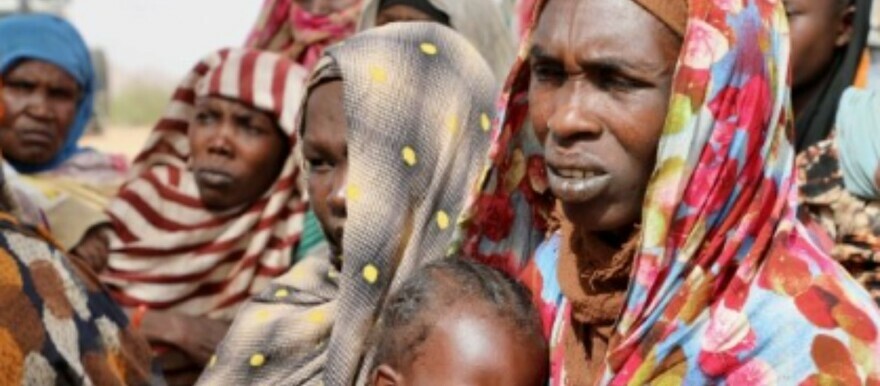Sudanese refugee women at Michi Refugee Camp, located in eastern Chad, have complained about the worsening living conditions.
Speaking to Radio Tamazuj Wednesday, Khadija Ishaq Ahmed, one of the refugees, expressed her frustration in a statement to Radio Tamazuj on Monday.
She highlighted the inadequate food rations, specifically lentils and red sorghum, which are insufficient for the number of families in the camp. “I have children to feed and take care of, but I’m struggling to provide for them,” Khadija explained.
She also raised concerns about the possibility of children being unable to attend school due to parents’ inability to pay tuition fees. This financial strain stems from the deteriorating economic situation and the loss of previous sources of income following the conflict on April 15th.
Refugee Buthaina Hussein Juma also raised concerns about the scarcity of water in the Meji camp, compelling them to embark on early morning journeys covering long distances in search of water sources.
In a parallel account, refugee Rawda Jumaa detailed the health challenges she faces within the camp, attributing them to the absence of sanitary kits. This shortage has resulted in the use of unsanitary cloth, posing potential risks of infections and other health issues in the future.
A conflict broke out in April last year between Sudan’s army chief Abdel Fattah al-Burhan and Mohamed Hamdan Daglo, his former deputy and commander of the paramilitary Rapid Support Forces. The conflict led to the deaths of thousands of people so far and sparked a humanitarian disaster.
Rawda appealed to women’s organizations, urging them to intervene and extend assistance to safeguard the health of women in the camp and mitigate potential health risks.
According to the United Nations, at least 25 million people, more than half the population, need aid, including nearly 18 million who face acute food insecurity.
The fighting has also caused 1.6 million people to flee abroad, many to neighbouring Chad and Egypt. The organization says another 6.1 million are now homeless.




